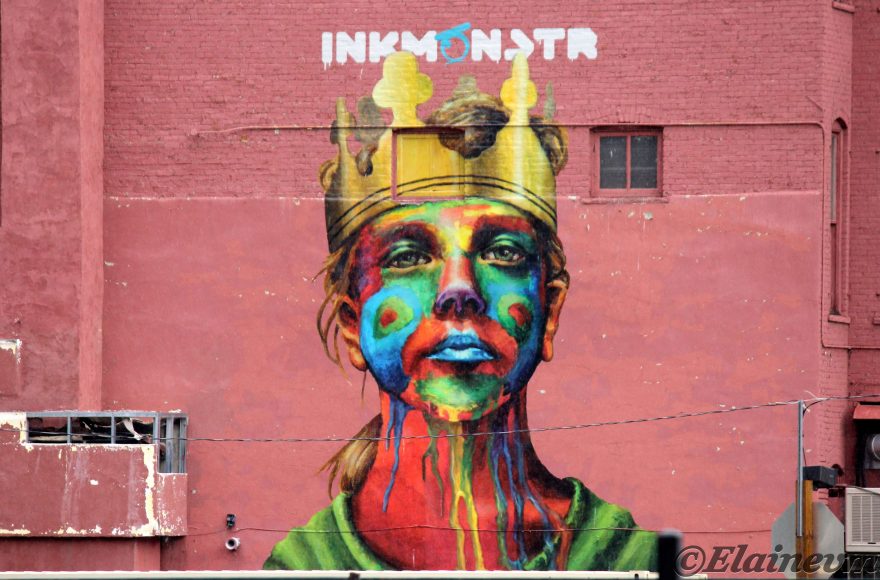Growing up, I always wondered, “How did they do it?”
This is a question that I would ask myself often. How did my role models make it to the top?
Every time I thought about any of them, the words that came to mind often included:
- Special
- Different
- Unique
- Talented
- Gifted
- Perfect
This notion started to disappear as I made my way into upper management. I began to notice that my struggle was similar to the struggles of those around me. I slowly realized that the words I thought belonged to my role models were a façade that society and the media created, the same way we put filters on every picture before we post them on social media.
It was all a big lie!
We are all works in progress, and our imperfections are what make us human. For many years, I struggled with many fears that made it more difficult for me to live an authentic life. I didn’t think I was smart enough, good enough, techie enough, Latina enough, gay enough, and the list goes on and on and on. I later discovered that I had created a list of unrealistic expectations on myself and others that prevented my growth and my ability to connect with others. I was putting people on a pedestal, and this division made me feel that the successes they had were unattainable by someone like me.
Even after I was able to succeed in the conventional sense, these feelings of self-doubt and not-enough-ness still remained.
After delivering my TEDx talk, I was highly uncomfortable when young girls referred to me as their role model. I would tell myself, “Do they know how imperfect I am?”
That is when I realized the power of conditioned thinking and how imperative it is for me to question my thoughts regularly. You see, building one’s confidence comes from turning our thoughts into action and moving forward while we are afraid, and fear is precisely what gets in the way of our authenticity. Fear is what holds us back.
We are afraid of failure, making mistakes, being wrong, and disappointing those we love. This fear continues to cover up the reality of our daily lives and sends the wrong message. In the past few years, I noticed a pattern in the behaviors I saw got in the way of my authenticity. Here are some red flags to watch out for:
Reacting Instead of Responding
Even while responding is a reaction, it is a reaction that takes into account the wanted outcome of the conversation. It is crucial to create space between the action and the reaction. We need this space to breathe, think, reflect, and then move accordingly. Mindfulness is a tool that I’ve used for years now, and it helps me watch my thoughts while pausing and considering a compassionate response. Mindfulness can take different forms, from a daily mediation practice, to intentional walks, stepping away from Zoom or your notifications for a few hours. It can even be as simple as closing your eyes and taking a few deep breaths before responding to a stressful situation. You will be amazed at how much acknowledging our mistakes can benefit children in the long run.
Not Walking the Talk
We must speak with honesty and do what we say we will do. If you gossip about the neighbor or your coworker, it sends a clear message that is louder than any words you use to cover it up later on. As Don Miguel Ruiz says in his book “The Four Agreements,” be impeccable with your word. I would add to this and say that it is also important to be impeccable with your actions. When actions and words do not align, it is unfair to both yourself and others you are interacting with.
Refusing to Acknowledge You Are Wrong/Made a Mistake
Apologizing when you are at fault and admitting your mistakes while learning the lessons and not making them again is one of the most powerful messages a leader can share. It is all about being humble and seeing the tremendous power in our vulnerability. It also helps you built trust with those around you. The path to not repeating mistakes starts with acknowledgment and asking yourself, “What is this here to teach me?”
Reading the news about Naomi Osaka withdrawing from the French Open filled my heart with joy and inspired me to write this piece and start a movement. Naomi demonstrated what real leaders look like and how important it is to take care of our mental health issues and speak up. Naomi also demonstrated the power of setting boundaries and the need for all of us, especially women of color, to remain authentic and make self-care our priority.
(You can read about my journey here)
Today, I want to challenge you to use storytelling as a teaching tool and share the beauty of your imperfections. Share your stories, let everyone look under the mask you work so hard to put on, and see precisely how you overcame your struggles and continue to do so today.
We need to spend more time sharing our imperfections because, whether we like it or not, children are watching us and mirror the way we speak and act. The key is to continue moving forward without giving up, knowing that our process doesn’t have to be perfect.
Let’s teach our younger generation that “We are all good enough and ordinary is extraordinary!”
I am counting on you –
Much Love!
P.S.: In the coming year, I will spend some time collecting stories to share from “Imperfect Role Models”, and if you want to be a part of them, email me at 5xminority@gmail.com.





